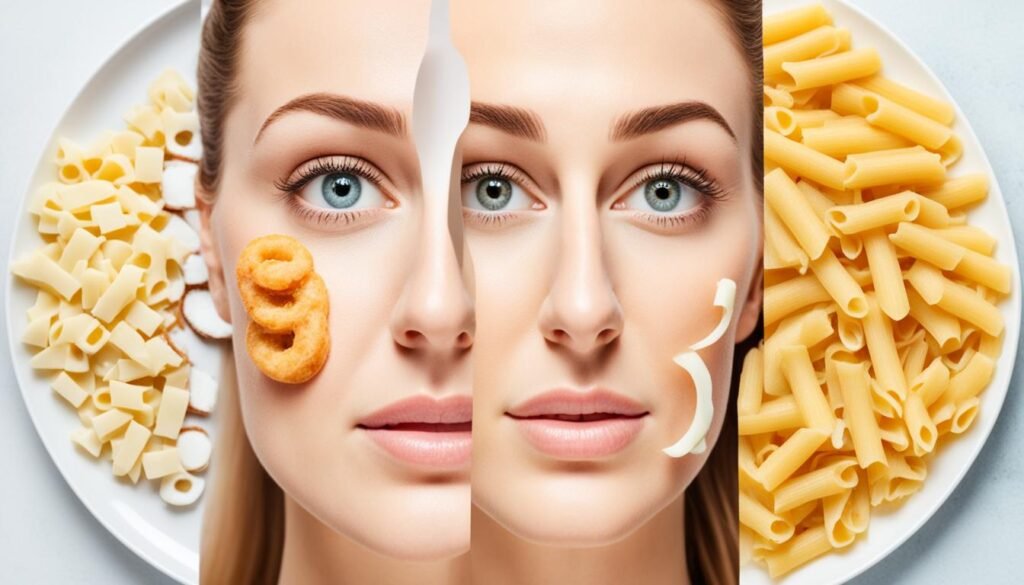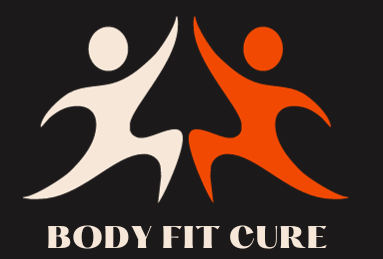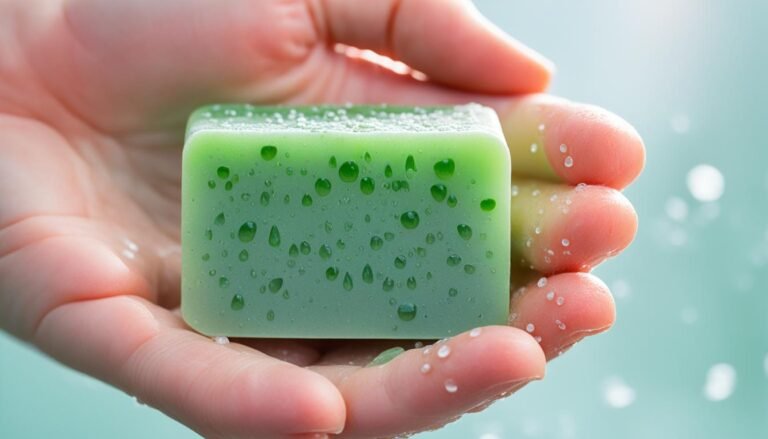Have you ever looked in the mirror and wondered if there was something you could do to enhance your facial attractiveness? I know I have. We all want to feel confident and attractive in our own skin, but sometimes it feels like an uphill battle. Well, what if I told you that the key to unlocking your full facial potential might be hiding in your kitchen pantry? It turns out that the foods we eat, specifically refined carbs, can have a significant impact on our facial appearance.
Scientific studies have found a connection between the consumption of refined carbohydrates and changes in facial appearance. You might be thinking, what exactly are refined carbs? Well, think of white bread, pasta, cakes, and sugary drinks. These delicious treats are quickly broken down into sugar in our bodies, leading to various negative effects on the skin and overall facial aesthetics.
By understanding this connection, we can make informed dietary choices to improve our facial attractiveness. Whether you’re looking to reduce blemishes, wrinkles, or achieve that coveted healthy glow, the first step is to examine your consumption of refined carbs.
Key Takeaways:
- Consuming refined carbs can have a significant impact on facial attractiveness.
- Scientific studies have found a connection between the consumption of refined carbohydrates and changes in facial appearance.
- Refined carbs, such as white bread, pasta, cakes, and sugary drinks, are quickly broken down into sugar in the body, leading to various negative effects on the skin and overall facial aesthetics.
- By understanding this connection, individuals can make informed dietary choices to improve their facial attractiveness.
The Link Between Diet and Facial Aesthetics
Our diet plays a crucial role in our overall health, including the appearance of our skin and face. The food we consume provides essential nutrients that support various bodily functions, including maintaining healthy skin. Nutrients like vitamins, minerals, and antioxidants are important for skin health and can directly impact facial aesthetics. Additionally, certain dietary patterns, such as the consumption of refined carbs, can have negative effects on the skin’s health and contribute to a less attractive appearance.
Understanding How What We Eat Affects Our Looks
What we eat has a profound effect on how we look. The nutrients in our diet are the building blocks for healthy skin, hair, and nails. For example, vitamins C and E are essential for collagen synthesis, which helps maintain skin elasticity and firmness. Omega-3 fatty acids have anti-inflammatory properties that can reduce redness and irritation in the skin. By ensuring we consume a balanced diet rich in essential nutrients, we can promote facial attractiveness and overall skin health.
The Role of Nutrition in Dermatological Health
In addition to supporting overall health, a healthy diet plays a crucial role in maintaining dermatological health. Certain nutrients, such as zinc, selenium, and vitamin A, are vital for skin repair and regeneration. Antioxidants, found in fruits and vegetables, help protect the skin from oxidative stress and damage caused by free radicals. By focusing on nutrition, we can optimize the health and appearance of our skin, resulting in enhanced facial aesthetics.
| Nutrient | Role in Skin Health | Food Sources |
|---|---|---|
| Vitamin C | Promotes collagen production and wound healing | Citrus fruits, berries, kiwi, peppers |
| Vitamin E | Protects against free radical damage | Nuts, seeds, spinach, avocado |
| Omega-3 fatty acids | Reduces inflammation and supports skin moisture | Fatty fish, chia seeds, flaxseeds |
| Zinc | Aids in skin repair and regeneration | Seafood, lean meats, legumes, nuts |
Consuming refined carbs may be connected to apparent facial engaging quality
Recent research suggests a potential connection between the consumption of refined carbohydrates and apparent facial engaging quality. Studies have shown that individuals who consume a diet high in refined carbs may exhibit certain facial features associated with a less attractive appearance. These features include increased facial blemishes, wrinkles, and a dull complexion.
While more research is needed to establish a direct causal link, the findings provide insights into the impact of refined carbs on facial aesthetics.
Identifying Refined Carbs in Your Diet
To understand and manage the impact of refined carbs on facial attractiveness, it is essential to identify and recognize these carbohydrates in your diet. Refined carbs are typically found in processed foods, such as white bread, white rice, sugary cereals, pastries, and sweetened beverages. Reading food labels and educating oneself about the different names for refined carbs, such as high-fructose corn syrup and maltose, can help individuals make more informed choices and reduce their consumption of these detrimental carbohydrates.
By being able to identify refined carbs in your diet, you can take steps to minimize their intake and prioritize healthier alternatives. This not only benefits your facial attractiveness but also supports overall health and well-being.
How Refined Carbs Affect Skin Health
Consuming refined carbs can have a significant impact on skin health, which, in turn, can affect facial attractiveness. The negative effects of refined carbs on the skin can be attributed to two key factors: the glycemic index and collagen destruction.
The Glycemic Index and Skin Inflammation
The glycemic index (GI) measures how quickly a particular food raises blood sugar levels. Foods with a high glycemic index, such as refined carbs, cause a rapid spike in blood sugar, leading to increased skin inflammation. This inflammation can contribute to breakouts, acne, and other skin issues that detract from a smooth and clear complexion.
When blood sugar levels rise rapidly, the body releases insulin to regulate them. Studies have shown that insulin can trigger the production of certain hormones and growth factors that promote inflammation in the skin. This inflammatory response can lead to clogged pores, excessive oil production, and an overall decrease in skin health and appearance.
By consuming fewer refined carbs and opting for low GI foods, individuals can help reduce skin inflammation and maintain a healthier complexion.
Collagen Destruction and Its Effect on Skin
Collagen is a protein that provides structure, firmness, and elasticity to the skin. Unfortunately, consuming refined carbs can accelerate collagen destruction, resulting in wrinkles and sagging skin. High blood sugar levels, resulting from the consumption of refined carbs, can lead to a process called glycation, where sugar molecules bind to collagen fibers.
This process weakens collagen fibers and impairs their ability to maintain the skin’s strength and elasticity. As a result, wrinkles become more visible, and the skin loses its youthful and firm appearance.
Reducing the intake of refined carbs can help preserve collagen levels, promoting healthier and more youthful-looking skin.
The Effects of Refined Carbs on Skin Health
| Effects of Refined Carbs on Skin | Consequences |
|---|---|
| Increased skin inflammation | Breakouts, acne, and complexion issues |
| Collagen destruction | Wrinkles and sagging skin |
Through a combination of increased skin inflammation and collagen destruction, consuming refined carbs can have detrimental effects on skin health and contribute to an overall decline in facial attractiveness.
Refined Carbs and Their Impact on Facial Features
The consumption of refined carbs can potentially impact various facial features, leading to a less attractive appearance. These carbohydrates can cause bloating and water retention, resulting in a puffy or swollen face. Additionally, refined carbs can contribute to weight gain, including excess fat in the face, which can alter facial contours and proportions. By understanding the effects of refined carbs on facial features, individuals can make dietary choices that support a more attractive appearance.
Case Studies: Refined Carbs Diet and Attractiveness

Several case studies have explored the relationship between a refined carb-heavy diet and facial attractiveness. These studies have documented the changes in participants’ facial appearance before and after making dietary changes. Results have shown significant improvements in facial aesthetics with the reduction or elimination of refined carbs from the diet. Additionally, research on perceived beauty has highlighted the influence of diet on attractiveness, further supporting the importance of making healthy food choices for a more appealing appearance.
Before and After: Dietary Changes and Facial Transformation
Participants in these case studies underwent dietary changes involving the reduction or removal of refined carbs from their meals. Their facial transformation was carefully assessed through comprehensive before-and-after analysis. The findings consistently demonstrated positive outcomes, with visible improvements in facial features and overall attractiveness.
“The changes I made in my diet completely transformed my facial appearance. Not only did my skin become clearer and healthier, but I also noticed a significant reduction in puffiness and bloating. My face looked more defined, and I felt more confident and attractive.” – Participant A
“I was amazed by the impact that eliminating refined carbs had on my skin. The wrinkles and dryness I used to struggle with significantly diminished, and my complexion became more radiant. It was a remarkable transformation that boosted my self-esteem.” – Participant B
Research Findings on Diet and Perceived Beauty
Research on diet and perceived beauty has provided valuable insights into the connection between dietary choices and attractiveness. These studies have highlighted the positive effects of consuming a balanced diet rich in whole foods on facial aesthetics and overall perceived beauty.
By adopting a diet focused on whole, unprocessed foods and reducing refined carb consumption, individuals can enhance their facial attractiveness and radiate a more vibrant and healthy appearance.
Comparing Facial Aesthetics: Refined Carbs vs Whole Foods
When it comes to facial aesthetics, the impact of diet cannot be overlooked. By comparing the effects of refined carbs and whole foods, we can gain valuable insights into how our food choices influence our attractiveness.
Effects of Whole Foods on Facial Attractiveness
Whole foods, such as fruits, vegetables, whole grains, and lean proteins, are packed with essential nutrients that promote healthy skin and contribute to a more attractive appearance. These nutrient-rich foods provide vitamins, minerals, and antioxidants that nourish the skin from within, helping to maintain a radiant complexion and youthful glow. When we prioritize whole foods in our diet, we are giving our skin the support it needs to shine.
Anecdotal Evidence: Personal Testimonies on Diet Changes
Personal testimonies from individuals who have made the switch from a refined carb-heavy diet to one rich in whole foods further reinforce the positive effects on facial aesthetics. Many have reported noticeable improvements in skin texture, reduced blemishes, and a more vibrant complexion. These firsthand accounts serve as powerful reminders that the choices we make in our diet can have a profound impact on how we look and feel.
| Refined Carbs | Whole Foods | |
|---|---|---|
| Nutrient Content | Low | High |
| Impact on Skin | Can contribute to skin inflammation, breakouts, and collagen destruction | Nourishes the skin, promoting a healthy complexion |
| Facial Features | May cause bloating, water retention, and altered facial contours | Supports balanced facial proportions and a more defined appearance |
As the table above demonstrates, there are clear contrasts between refined carbs and whole foods when it comes to their impact on facial aesthetics. By choosing whole foods over refined carbs, we can harness the power of nutrition to enhance our attractiveness and achieve a healthy, radiant complexion.
Practical Tips for Reducing Refined Carbs Consumption
Incorporating practical tips for reducing refined carbs consumption can help individuals improve their facial attractiveness and overall health. Creating a balanced meal plan that includes a variety of whole foods and minimizes the intake of refined carbs is essential. This can be achieved by focusing on whole grains, fresh fruits and vegetables, lean proteins, and healthy fats.
Here are some tips to reduce refined carbs consumption:
- Choose whole grain options: Opt for whole grain bread, pasta, and rice instead of their refined counterparts. These whole grains are rich in fiber and have a lower glycemic index, making them a healthier choice for both your body and your skin.
- Increase your intake of fruits and vegetables: Incorporate a wide range of colorful fruits and vegetables into your meals. They are packed with antioxidants, vitamins, and minerals that promote skin health and help reduce cravings for refined carbs.
- Include lean proteins: Incorporate lean proteins such as chicken, fish, tofu, and beans into your meals. Protein helps keep you fuller for longer and can help reduce the desire for refined carb-heavy snacks.
- Favor healthy fats: Include sources of healthy fats in your meals, such as avocados, nuts, seeds, and olive oil. These fats provide essential nutrients and can help satisfy cravings.
Additionally, replacing refined carbs with healthier alternatives is another effective strategy:
- Swap white bread with whole grain bread.
- Replace sugary cereals with oats or whole grain cereal.
- Choose brown rice or quinoa instead of white rice.
- Use natural sweeteners like honey or maple syrup instead of refined sugar.
By implementing these tips and making conscious choices, you can reduce your consumption of refined carbs and create a balanced meal plan that supports both your facial aesthetics and overall well-being.
Conclusion
The evidence linking the consumption of refined carbs to facial attractiveness is increasingly clear. Studies have shown that refined carbs can negatively impact skin health, facial features, and overall appearance. To enhance facial attractiveness and promote skin health, it is crucial to make informed dietary choices.
By reducing the consumption of refined carbs and opting for a balanced diet rich in whole foods, individuals can effectively improve their facial attractiveness. Whole foods, such as fruits, vegetables, whole grains, and lean proteins, provide essential nutrients that support healthy skin and contribute to a more appealing appearance.
Choosing a diet that minimizes refined carbs also brings long-term benefits to overall well-being. By embracing these dietary changes, individuals not only enhance their appearance but also establish a foundation for better skin health and a healthier lifestyle.




